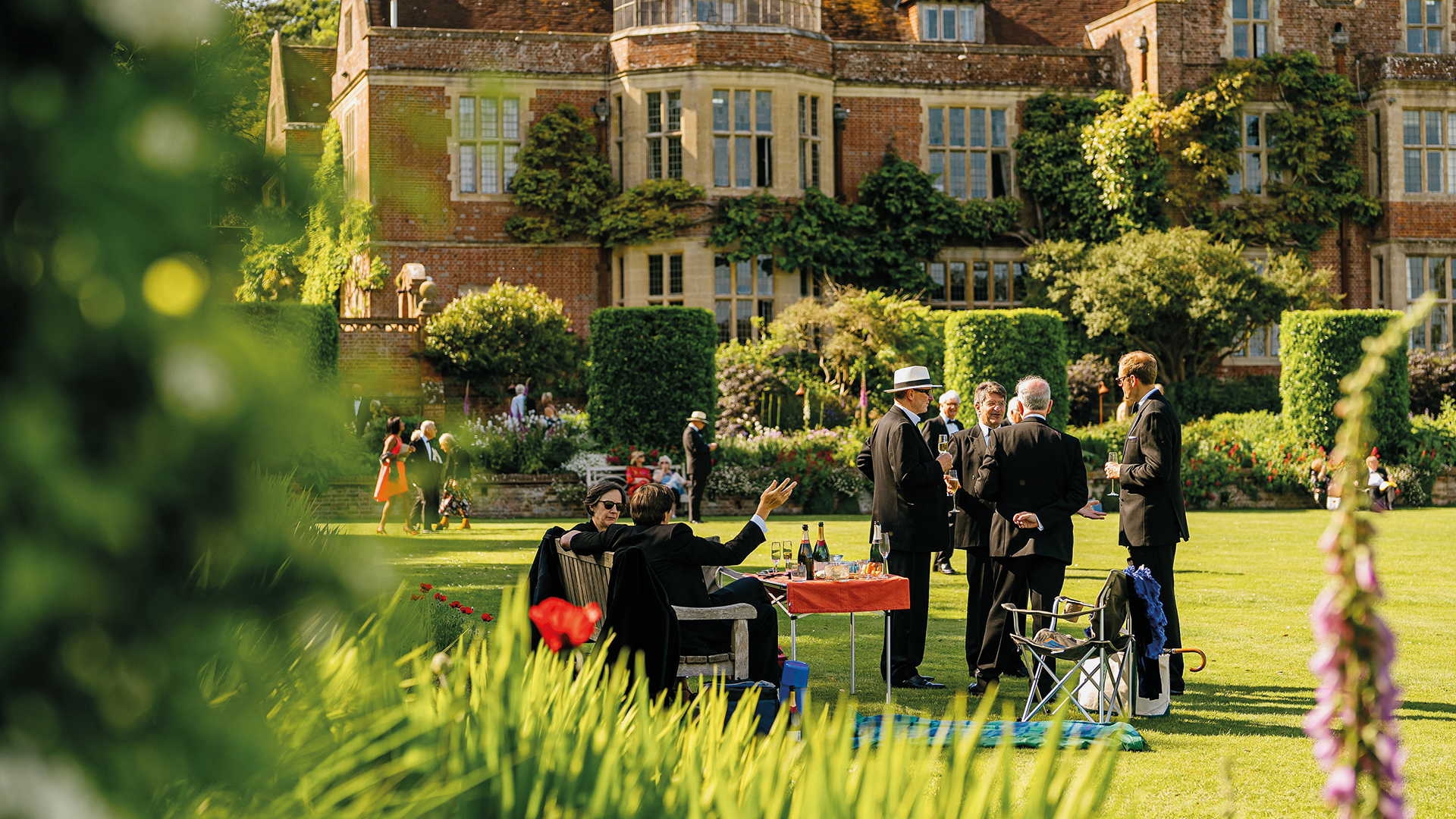A man in a bow tie is unpacking items from a small trolley. To the table set up on the manicured, now yellowing lawn he adds a white tablecloth and silver cutlery. His equally well-attired picnickers serve a sumptuous feast; around him, encircled by sculptures, similar formal tableware is arranged. Diners have brought flower arrangements: wicker baskets feature the unmistakeable ‘F&M’ monogram; one blanket even boasts a candelabra.
We are down a rabbit hole headed towards a nostalgic, English ideal of luxury and artistry. Glyndebourne is the pinnacle of country house opera, having burnished its stagings since 1934 when John Christie and Audrey Mildmay first opened up their Sussex pile. Today, world-class productions take place in a 1,200 seat opera house that opened in 1994.
The summer season is the high point in the calendar, with attendees at the 70 performances encouraged to enjoy the exquisite grounds during the extended interval. “Do walk around the lake,” urges a friendly fellow visitor, adding, with perfectly British eccentricity, “and make sure you go anti-clockwise.”
Get the latest news and insight into how the Big Issue magazine is made by signing up for the Inside Big Issue newsletter
There are many jokes about Glyndebourne. It is said that conversation must battle the popping of champagne corks (it’s the only venue I know that offers cork recycling). Summer festival stalls tickets cost around £200. These are comparable to the Royal Opera House, but the picnic element at Glyndebourne creates an Eton mess mix not experienced at Covent Garden, where you can quietly read the programme without being exposed to comparisons between meals, outfits, schools and other byways for social status.
Various copycat country house opera festivals have emerged both in the UK and abroad (a colleague once referred to “the Glyndebourne of Bulgaria”). Some (such as Garsington in Buckinghamshire) are community minded and warm hearted; others are prissy, bogged down in dress codes (black tie is ubiquitous but not compulsory at Glyndebourne) and insularity.





